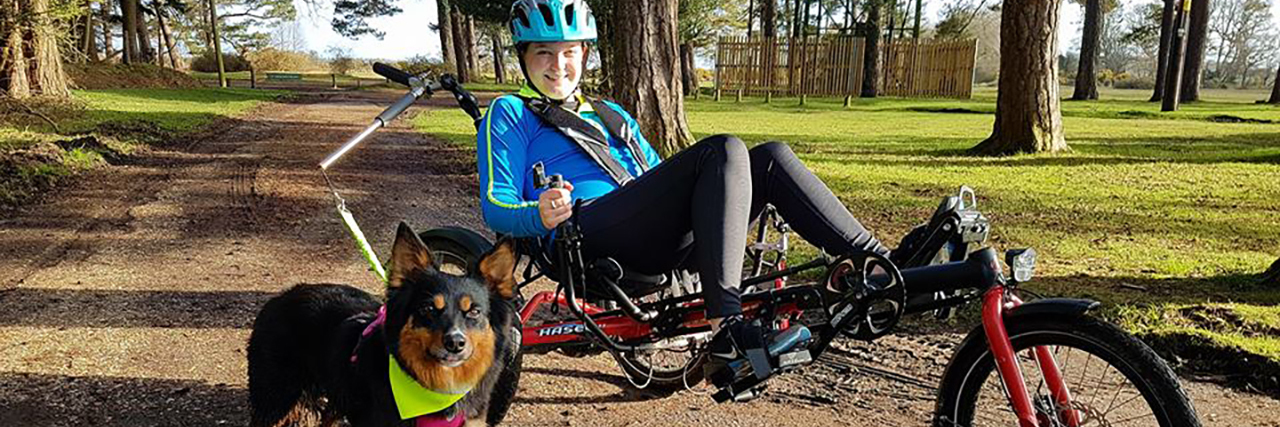My name is Megan and I am 21 years old. In 2011, I developed a number of debilitating medical conditions after fainting at a Scouts Remembrance Sunday Parade. My skull was fractured in multiple places, and I now battle daily fainting attacks, dizziness, impaired balance, hearing loss, and episodic blindness.
After my accident I noticed day-to-day tasks were becoming increasingly difficult, as I was unable to bend down without becoming light-headed or dizzy. I also felt vulnerable, as fainting attacks happened without warning, and I was unable to call for help.
That’s when I enlisted the help of Dog A.I.D. (Assistance In Disability); a U.K. charity that enable people with disabilities to train their own pet dogs to become qualified assistance dogs, with the help of professional dog trainers who volunteer their time.
With help from Dog A.I.D., I was able to teach my dog Ruby, a 7-year-old border collie/kelpie cross to assist with daily tasks such as: retrieving dropped items, fetching things from low shelves, emptying the washing machine, removing shoes, socks and trousers, and pushing pedestrian crossing buttons (so I don’t faint into oncoming traffic).
Most importantly, Ruby is able to use a special “dog phone” to call for help when I am unconscious, and can even answer the door for paramedics in an emergency! Ruby has truly changed my life. I no longer need to rely on others to help me, and I finally feel safe in my own home. Dog A.I.D. has given me my life back.
Unfortunately, since qualifying as an assistance dog in March 2017, Ruby has been attacked by other dogs on three separate occasions. Despite her physical injuries being minimal, the attacks had a big impact on her confidence, and she is no longer able to work in public places. Ruby is now semi-retired, only working at home and in the places where she feels comfortable, until a new assistance dog can formally take over.
Despite U.K. laws making it a criminal offense, latest statistics show that on average 12 attacks on working guide dogs are reported each month. These numbers could potentially double, or even triple, when taking into account attacks on other types of assistance dogs, such as hearing dogs, autism assistance dogs, or medical detection dogs.
I have now been placed on a waiting list with the Guide Dogs for the Blind Association (U.K.), to receive a Guide Dog that will be duel trained with Dog A.I.D., to assist with my multiple disabilities. Although I am not blind, I become easily disoriented when walking due to dizziness, and often bump into obstacles as a result. I also regularly lose my sight for short periods of time due a problem with the functioning of my central nervous system.
I was devastated after Ruby’s attacks. But with the continued support of Dog A.I.D. and new partnership with Guide Dogs, I am hopeful I will get my independence back once more. Having a dog that could both guide me around obstacles as well as assist with my physical disabilities will be wonderful! Ruby is expected to fully retire and become my pet dog again, once the new guide/assistance dog is fully trained. She will not be rehomed.
I am hoping our story will bring awareness to the rising problem of attacks on assistance dogs. Please, if your dog is not friendly, keep it on a lead!
This year I am aiming to ride 2,018 miles on my specially adapted bike in order to thank the two wonderful charities that have given me the gift of independence. I am so grateful to both Dog A.I.D. and Guide Dogs, and am hoping to raise £1,000 to be split between the two charities. Ruby will also be joining in the fun, running alongside me or getting a lift in her dog trailer.
The money I raise will enable these two great charities to continue creating life-changing partnerships. You can follow our journey and donate at Ride The Year 2018 – Adaptive Bikejor Challenge.

